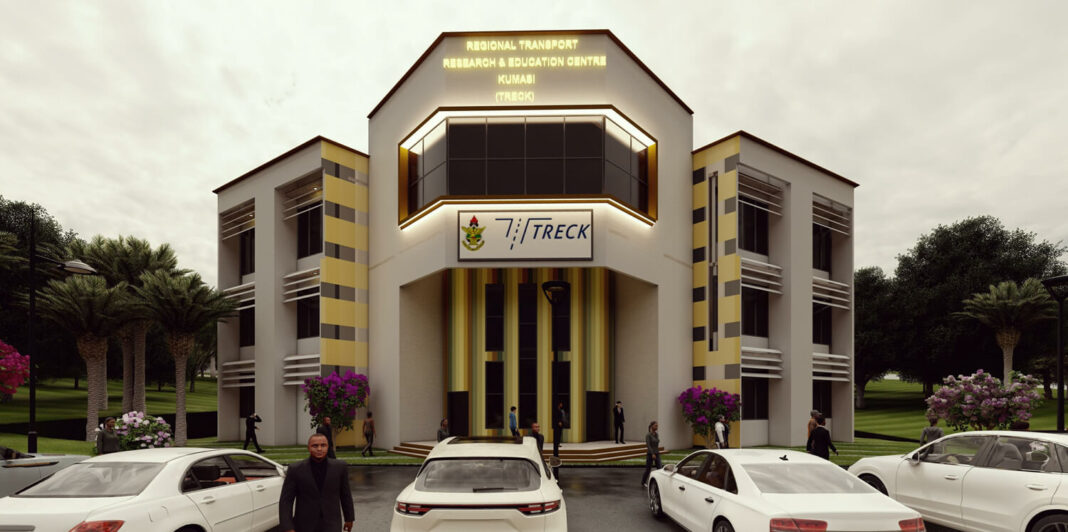Research Centres at KNUST: In the realm of academia, research plays a pivotal role in advancing knowledge, driving innovation, and addressing societal challenges. At Kwame Nkrumah University of Science and Technology (KNUST), a diverse array of research centers stands as beacons of discovery and collaboration. From biodiversity conservation to energy sustainability, these centers represent the university’s commitment to excellence in research. This web post is about the various research centres at KNUST. Join us on a journey as we delve into the fascinating world of KNUST’s research centers and uncover the impactful work being done within them.
Bureau of Integrated Research and Development
The Bureau of Integrated Research and Development (BIRD) serves as a hub for interdisciplinary research initiatives aimed at addressing complex societal issues. With a focus on sustainable development, BIRD fosters collaboration among researchers from various disciplines to tackle challenges related to agriculture, natural resource management, and rural development. Through innovative projects and community engagement, BIRD contributes to positive change within local and global communities.
Centre for Biodiversity Utilization and Development (CBUD)
Dedicated to the conservation and sustainable use of biodiversity, CBUD plays a vital role in preserving Ghana’s rich natural heritage. Through research and outreach efforts, CBUD aims to enhance our understanding of biodiversity patterns, promote conservation strategies, and support the equitable utilization of biological resources. From botanical gardens to wildlife sanctuaries, CBUD’s initiatives serve as platforms for education, conservation, and scientific discovery.
Centre for Cultural and African Studies
Celebrating the vibrant cultural heritage of Africa, the Centre for Cultural and African Studies (CCAS) serves as a nexus for interdisciplinary research on African history, language, and traditions. By exploring themes of identity, heritage, and social dynamics, CCAS contributes to a deeper appreciation and understanding of Africa’s diverse cultures. Through scholarly activities and community engagement, CCAS fosters cultural exchange and promotes dialogue on issues of cultural significance.
Centre for Human Studies
The Centre for Human Studies (CHS) focuses on research related to human behavior, society, and well-being. Through empirical research and theoretical inquiry, CHS explores topics such as psychology, sociology, anthropology, and public health. By investigating complex social phenomena and promoting evidence-based practices, CHS seeks to inform policies and interventions that enhance human welfare and promote social justice.
Dairy/Beef Research Station
As a vital component of KNUST’s agricultural research infrastructure, the Dairy/Beef Research Station conducts cutting-edge research on livestock production and management. From genetic improvement to nutritional optimization, the station’s research initiatives aim to enhance the productivity, profitability, and sustainability of dairy and beef operations. Through partnerships with industry stakeholders and outreach programs, the station translates research findings into practical solutions for farmers and producers.
The Brew-Hammond Energy Centre, College Of Engineering
At the forefront of energy research and innovation, the Brew-Hammond Energy Centre (BHEC) leads the charge towards a sustainable energy future. Through multidisciplinary research projects and technology development initiatives, BHEC explores renewable energy sources, energy efficiency strategies, and clean energy technologies. By collaborating with industry partners and government agencies, BHEC accelerates the transition to a low-carbon energy system and fosters economic development.
Kumasi Center For Collaborative Research (KCCR)
In collaboration with the German Bernhard Nocht Institute for Tropical Medicine, the Kumasi Center for Collaborative Research (KCCR) is dedicated to combating infectious diseases and promoting public health in Ghana and beyond. Through state-of-the-art laboratories and multidisciplinary research teams, KCCR conducts groundbreaking research on emerging pathogens, vaccine development, and disease transmission dynamics. By forging partnerships with international institutions and local stakeholders, KCCR contributes to global efforts to address health threats and improve healthcare outcomes.
National Institute for Mathematical Sciences (NIMS)
As a premier center for mathematical research and education, the National Institute for Mathematical Sciences (NIMS) fosters excellence in mathematical scholarship and scientific inquiry. Through collaborative research projects, graduate training programs, and outreach activities, NIMS advances the frontiers of mathematical knowledge and promotes interdisciplinary collaborations across various fields. By nurturing the next generation of mathematicians and fostering a culture of mathematical excellence, NIMS contributes to Ghana’s scientific development and global competitiveness.
Technology Consultancy Centre (TCC)
The Technology Consultancy Centre (TCC) serves as a catalyst for technology-driven innovation and entrepreneurship. Through technology transfer initiatives, business incubation programs, and industry partnerships, TCC facilitates the commercialization of research findings and supports the growth of technology-based enterprises. By providing technical expertise, advisory services, and capacity-building opportunities, TCC empowers entrepreneurs and innovators to harness the power of technology for socio-economic development.
Laboratory For Interdisciplinary Statistical Analysis (LISA)
As a hub for statistical research and data analysis, the Laboratory for Interdisciplinary Statistical Analysis (LISA) provides essential support to researchers across various disciplines. From study design to data interpretation, LISA offers expertise in statistical methods and computational tools to enhance the quality and rigor of research studies. By promoting collaboration and knowledge exchange, LISA strengthens KNUST’s research infrastructure and facilitates evidence-based decision-making in academia, industry, and government.
Conclusion
In conclusion, the research centers at Kwame Nkrumah University of Science and Technology (KNUST) represent the university’s commitment to advancing knowledge, fostering innovation, and addressing pressing societal challenges. Through interdisciplinary collaboration, cutting-edge research, and community engagement, these centers play a vital role in shaping the future of Ghana and contributing to global scientific progress. As students and researchers, let us embrace the opportunities afforded by these research centers and work together to create a brighter, more sustainable future for all.
YOU MAY ALSO READ: KNUST Campus: Architectural Marvels and Beautiful Landscape



